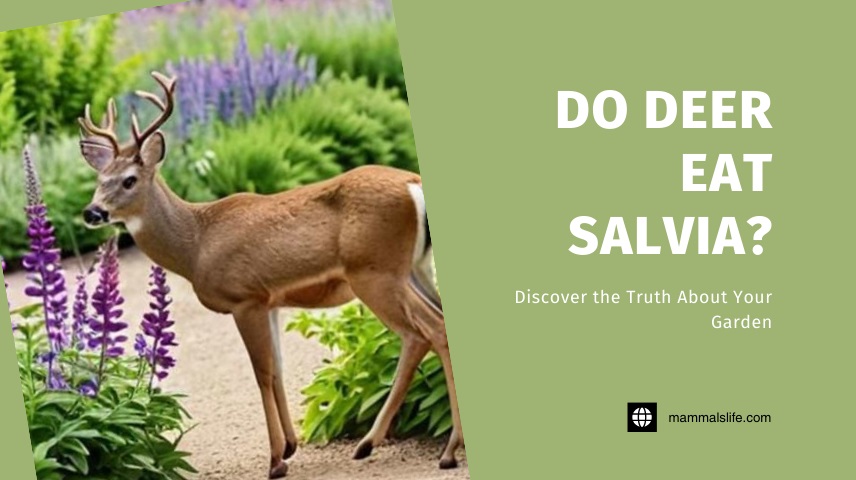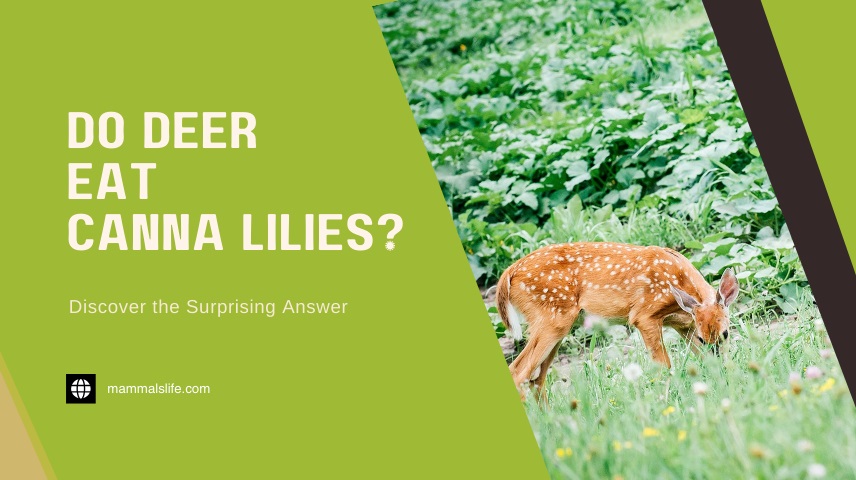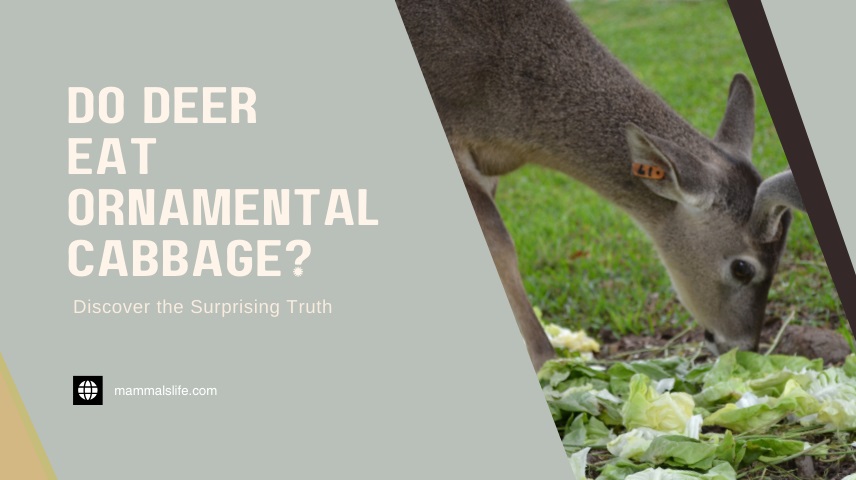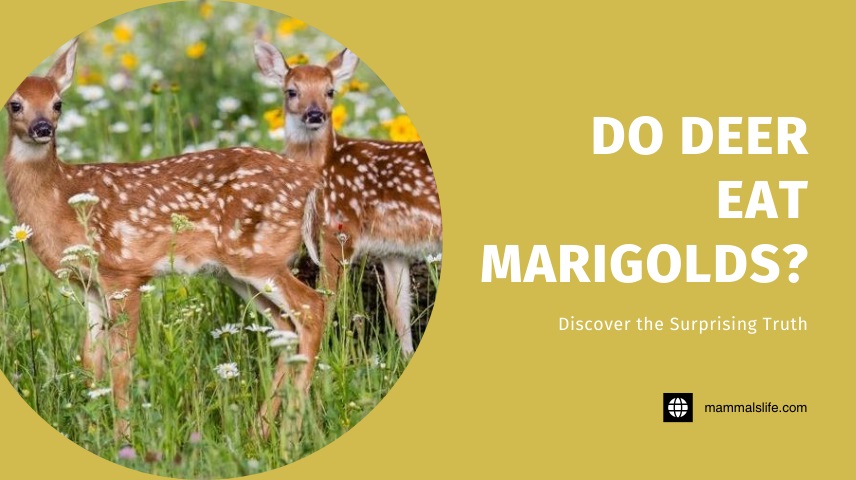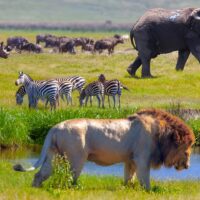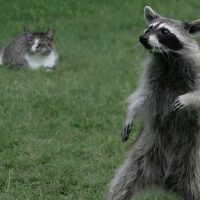Last Updated on February 22, 2025 by Mammals Life
Deer typically do not eat salvia plants. Salvia is known for its strong scent and taste that deer dislike.
Salvia, a popular garden plant, belongs to the mint family and offers vibrant blooms. Gardeners often choose salvia for its deer-resistant qualities. This plant’s strong aroma and slightly bitter taste deter deer from munching on it. Salvia thrives in various climates and requires minimal care, making it a favorite among both novice and experienced gardeners.
Besides being deer-resistant, salvia attracts pollinators like bees and butterflies, enhancing garden biodiversity. Offering a range of colors and sizes, salvia fits well in any garden design. This plant remains an excellent choice for those looking to keep their gardens deer-free.
Deer’s Diet Preferences
Deer are known for their varied diet. They eat a wide range of plants. Understanding their diet preferences helps gardeners protect their plants. Among the many plants, one question often arises: Do deer eat salvia?
Common Plants Deer Eat
Deer often eat plants that are high in moisture and nutrients. These plants include:
- Hostas
- Daylilies
- Roses
- Azaleas
- Tulips
Deer also enjoy vegetables and fruits. They often eat:
- Lettuce
- Beans
- Carrots
- Apples
- Strawberries
Factors Influencing Diet Choices
Several factors influence a deer’s diet choices. These include:
| Factor | Influence |
|---|---|
| Availability | Deer eat what’s accessible in their habitat. |
| Season | Diet changes with seasons. Spring and summer offer more options. |
| Nutrition | Deer prefer plants high in nutrients. |
| Palatability | Taste matters. Deer avoid bitter or toxic plants. |
Salvia is not a common choice for deer. It is often avoided due to its strong scent and taste.
Understanding Salvia
Salvia, also known as sage, is a popular garden plant. Its vibrant flowers and aromatic leaves make it a favorite among gardeners. Many wonder if deer eat salvia. To answer this, let’s understand more about salvia.
Popular Varieties
Salvia comes in many varieties, each with unique features. Here are some popular ones:
- Salvia officinalis – Commonly known as culinary sage, it has gray-green leaves.
- Salvia splendens – Known as scarlet sage, it boasts bright red flowers.
- Salvia nemorosa – Also called woodland sage, it has purple-blue spikes.
- Salvia guaranitica – Often referred to as anise-scented sage, it has deep blue flowers.
Growing Conditions
Salvia thrives in specific conditions. Here are some key growing tips:
| Condition | Requirement |
|---|---|
| Sunlight | Full sun to partial shade |
| Soil | Well-drained, sandy soil |
| Water | Moderate, avoid overwatering |
| Temperature | Prefers warm climates |
Following these tips ensures healthy salvia plants. Healthy plants are less likely to attract deer. Deer usually avoid aromatic plants like salvia. This makes salvia a great choice for deer-resistant gardens.
Do Deer Eat Salvia?
Many gardeners wonder if deer eat salvia. Salvia is a popular garden plant. Its bright flowers attract butterflies and bees. But do deer find it tasty?
Observations From Gardeners
Gardeners often share their experiences with salvia and deer. Some say deer avoid salvia. They believe the strong smell keeps deer away. Others have seen deer nibble on salvia leaves. These mixed reports can confuse new gardeners.
| Observation | Details |
|---|---|
| Deer avoid salvia | Strong smell repels deer |
| Deer eat salvia | Deer nibble leaves |
Scientific Studies
Scientific studies provide more insight. Research shows salvia has compounds deer dislike. These compounds make salvia taste bitter. This might explain why many deer avoid salvia.
Yet, no plant is completely deer-proof. In harsh conditions, deer might eat anything. If food is scarce, they might munch on salvia too. So, while salvia is less likely to be eaten, it is not guaranteed.
Protecting Your Garden
Deer can be a big problem for gardeners. These animals love munching on plants. But you can protect your garden. There are ways to keep deer away from your beloved plants.
Deer-resistant Plants
Choosing the right plants can help. Some plants are less tasty to deer. They are called deer-resistant plants. Salvia is one such plant. Deer do not like its strong smell. Other good choices include:
- Lavender
- Yarrow
- Foxglove
- Marigold
These plants can help keep deer away from your garden. They are easy to grow and look pretty too.
Effective Fencing Solutions
A fence can also protect your garden. It needs to be tall. Deer can jump high. A fence should be at least 8 feet tall. Here are some effective fencing solutions:
| Fence Type | Advantages | Disadvantages |
|---|---|---|
| Wooden Fence | Strong and durable | Costly and needs maintenance |
| Electric Fence | Very effective | Can be dangerous |
| Mesh Fence | Less costly | Less durable |
A good fence is a strong barrier. It keeps deer out and your garden safe.
Alternative Deterrents
Deer can be a gardener’s nightmare, especially when they feast on your plants. If you’re wondering about deer eating salvia, you’re not alone. Although salvia is often deer-resistant, hungry deer may still nibble on it. Exploring alternative deterrents can help protect your garden from these persistent foragers.
Natural Repellents
Using natural repellents is a safe way to keep deer away. These are non-toxic and environmentally friendly. Here are some effective options:
- Garlic Spray: Deer dislike the strong smell of garlic. Mix garlic with water and spray it around your plants.
- Soap Bars: Hanging soap bars from trees can deter deer. The strong scent confuses their sense of smell.
- Hot Pepper Spray: Capsaicin in hot peppers irritates deer. Mix hot pepper flakes with water and spray it on your plants.
Technological Solutions
Technology offers innovative ways to deter deer. These methods are often more reliable and longer-lasting.
- Motion-Activated Sprinklers: These devices spray water when they detect movement. The sudden burst of water scares the deer away.
- Ultrasonic Repellents: These gadgets emit high-frequency sounds. The noise is unpleasant to deer but inaudible to humans.
- Electric Fencing: Electric fences provide a mild shock to any animal that touches them. This teaches deer to avoid your garden.
| Natural Repellent | Effectiveness | Application Frequency |
|---|---|---|
| Garlic Spray | Moderate | Weekly |
| Soap Bars | Moderate | Monthly |
| Hot Pepper Spray | High | Bi-weekly |
Both natural repellents and technological solutions offer effective ways to protect your garden. Choose the method that best suits your needs and keep your salvia safe from deer.
Frequently Asked Questions
Do Deer Eat Salvia Plants?
Deer generally avoid salvia due to its strong scent and taste.
Is Salvia Deer-resistant?
Yes, salvia is considered deer-resistant and is rarely eaten by deer.
Why Don’t Deer Eat Salvia?
Deer dislike salvia’s strong aroma and bitter taste, making it unappealing.
Can Salvia Deter Deer From Gardens?
Yes, planting salvia can help deter deer due to its unpleasant scent.
What Types Of Salvia Are Deer-resistant?
Most salvia varieties are deer-resistant, including Salvia officinalis and Salvia nemorosa.
Is Salvia A Good Choice For Deer-prone Areas?
Absolutely, salvia is an excellent choice for gardens in deer-prone areas.
Conclusion
Salvia can be a deer-resistant plant, but preferences vary. Deer may nibble on salvia if food is scarce. To protect your garden, consider planting other deer-resistant varieties. Understanding local deer behavior is crucial. With the right strategies, you can enjoy a beautiful, thriving garden without deer damage.

